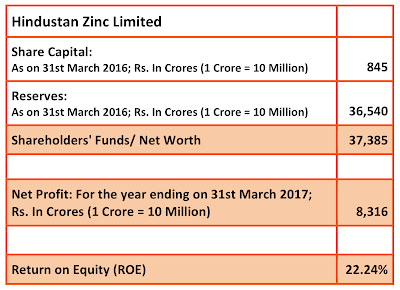In
our lives, we will occasionally face the question, “Loan vs Redemption of
Mutual Funds”. Suppose I want to buy a home the question arises, “should I
take a home loan or redeem a mutual fund investment”? This question is quite
deep, complex and serious. We need to discuss it carefully and in detail.
Loan is Bad
Undoubtedly debt, in general, is bad and you should avoid it. Value Investing exhorts to shun commercial borrowing as you would plague. The careless habit of borrowing and use of credit cards will create an unbearable debt burden. I feel sad seeing a number of bright youngsters working in wonderful companies and drawing handsome salaries but borrowing beyond their means through multiple loans and credit cards. They struggle to pay monthly EMIs and manage them by juggling through various cards.
I don't recommend borrowing for marriage. It is better to do the marriage function from savings. Like breaking fixed deposits created for this purpose. In the extreme instance, you may take interest-free loans from the organisation where you work or relatives and friends. You may ask me why this distinction even though the daughter's marriage is a huge, long-term and one-time cost. The reason is while the other situations I described above have some material utility daughter's marriage is a pure personal responsibility and expense
Even for buying immovable property like land and buildings, I don't recommend redeeming mutual fund. But if there is no other way we can at best pardon it. Let me narrate experience in a similar situation.
I was buying a piece of land in Uttarakhand for constructing our retirement home. The price was eight lakhs. I broke down fixed deposits lying in banks and mobilized from other sources. There was a final gap of one and a half lakh rupees. My wife was having a mutual fund a Systematic Investment Plan (SIP) actually, valued three lakh rupees. With a heavy heart, I asked her to redeem half of it. We purchased the piece of land. I have taken a home loan to build the house. So if we look at it we redeemed a mutual fund but only a small part of the project cost.
Can we totally avoid taking loans?
No, we can't always avoid a loan. Any useful and long-term expenditure that involves huge upfront cash outflow and which is beyond one's means may need taking a loan. Following are a few examples relevant for India:- Purchase or construction of a home - Avail a home loan
- Buying an automobile - please note carefully my advice about cars later in this post
- Child's higher education
I don't recommend borrowing for marriage. It is better to do the marriage function from savings. Like breaking fixed deposits created for this purpose. In the extreme instance, you may take interest-free loans from the organisation where you work or relatives and friends. You may ask me why this distinction even though the daughter's marriage is a huge, long-term and one-time cost. The reason is while the other situations I described above have some material utility daughter's marriage is a pure personal responsibility and expense
How to decide between loan vs redemption of mutual funds?
Don't Redeem Mutual Funds for Short-term Needs
Mutual fund investments are long-term investments. History shows that over very long periods of time mutual funds create unimaginable wealth. So to redeem mutual funds to meet short-term needs is squandering a valuable opportunity to create wealth.
So what are short-term needs? Here are a few examples:
- Paying a child's monthly school fees
- Going on a vacation
- Paying the monthly loan EMI
- Paying credit card dues
- Paying personal Income Tax
You should meet short-term needs only through your regular earnings. You should never redeem mutual funds for them.
In order to easily meet short-term liabilities, you have to learn to live a simple life. You should avoid the urge to splurge. My guru Warren Buffett says, "If you buy things you don't need, soon you will have to sell the things you need".
In order to easily meet short-term liabilities, you have to learn to live a simple life. You should avoid the urge to splurge. My guru Warren Buffett says, "If you buy things you don't need, soon you will have to sell the things you need".
Redeem Only for Purchasing an Equally Long-term and Appreciating Asset
You should never redeem your mutual fund in your lifetime. This is my firm view. However, if you ever have to redeem, it should be for an equally long-term asset with the same attractive capital appreciation. For example, purchasing a home or a high rent yielding immovable property.Even for buying immovable property like land and buildings, I don't recommend redeeming mutual fund. But if there is no other way we can at best pardon it. Let me narrate experience in a similar situation.
I was buying a piece of land in Uttarakhand for constructing our retirement home. The price was eight lakhs. I broke down fixed deposits lying in banks and mobilized from other sources. There was a final gap of one and a half lakh rupees. My wife was having a mutual fund a Systematic Investment Plan (SIP) actually, valued three lakh rupees. With a heavy heart, I asked her to redeem half of it. We purchased the piece of land. I have taken a home loan to build the house. So if we look at it we redeemed a mutual fund but only a small part of the project cost.
Don't redeem mutual fund to buy a useless, depreciable asset like a car
Buying a car is a bad idea. But in India where public transport is not ideal, an automobile is essential. However, don't buy expensive and luxury cars. Further, keep the car for at least 10 to 15 years. Don't keep changing cars or models often say in three to five years.
The car is a highly depreciating asset. The moment it comes out of the showroom it will lose 10 per cent of its value. The value further depreciates ten per cent every year of use. I have not counted the expenses of petrol, repairs and insurance yet.
Finally, it is not an asset but actually a liability.
Don't redeem your valuable mutual fund to buy an actual liability like the car.
Summary
The 'Loan vs Redemption of Mutual Fund' is a tricky question. Both loans and redeeming mutual fund shall be avoided. Under certain circumstances, they may be sparingly used as described above.






